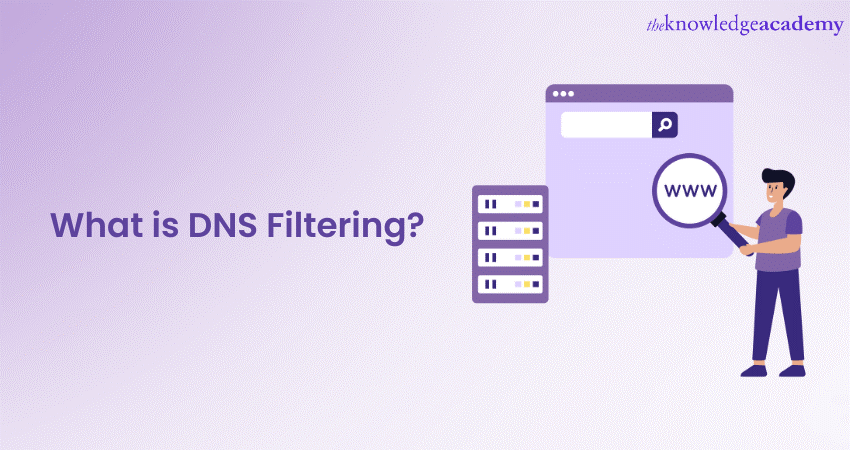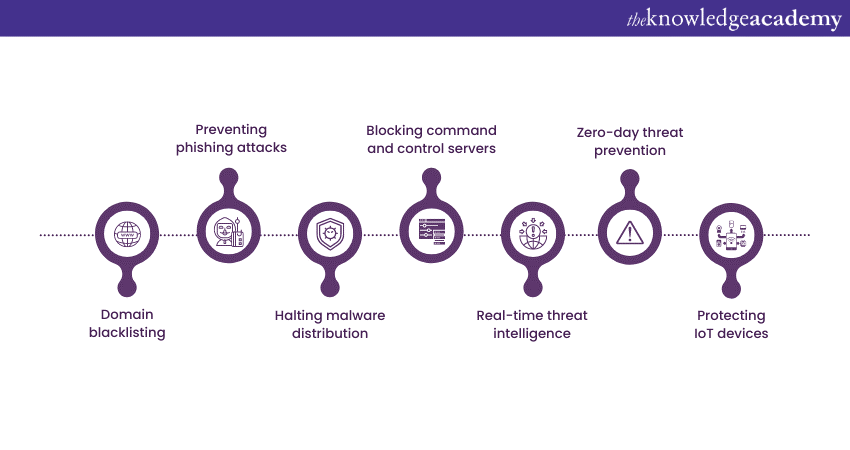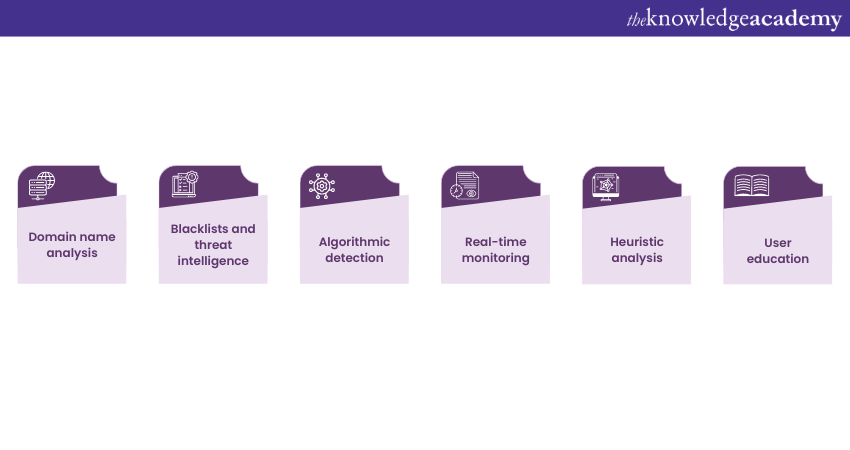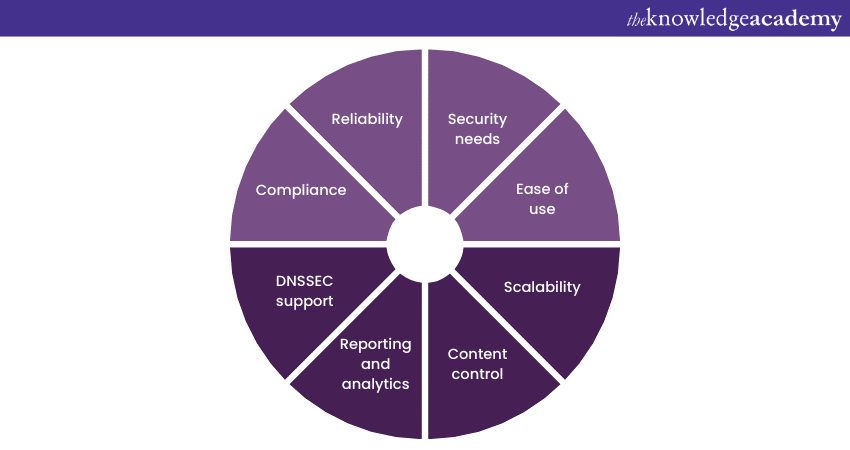We may not have the course you’re looking for. If you enquire or give us a call on 01344203999 and speak to our training experts, we may still be able to help with your training requirements.
Training Outcomes Within Your Budget!
We ensure quality, budget-alignment, and timely delivery by our expert instructors.

DNS Filtering, short for Domain Name System Filtering, is a vital technology that acts as a frontline defence against cyber threats and offers powerful content control capabilities. It operates at the core of the internet infrastructure, providing a shield against malicious websites, phishing attacks, and unwanted content.
According to a 2023 Statista report, the Cybersecurity market’s volume is projected to cross 200 billion GBP by 2028. DNS Filtering is a cybersecurity solution that stops internet users from accessing restricted domains on a server. It protects organisations from online threats.
Table of Contents
1) Understanding What is DNS Filtering
2) Looking at how DNS Filtering is valuable in two key contexts
3) What keeps a DNS server secure?
4) How to choose the right DNS Filter for your business?
5) Conclusion
Understanding What is DNS Filtering
DNS Filtering is a cybersecurity and content control technique that operates at the core of the internet, the Domain Name System. At its essence, DNS Filtering involves the manipulation of DNS requests to regulate and manage access to specific websites and online content.
When you type a website address, like ‘www.example.com’, into your browser, your device sends a request to a DNS server to translate the user-friendly domain name into the corresponding IP address. DNS Filtering steps into this process and acts as a gatekeeper, intercepting these requests and scrutinising them against predefined policies and rules.
There are two primary facets to DNS Filtering:
a) Blacklisting: DNS Filtering utilises lists of blocked domains, known as blacklists, which contain websites associated with malicious or inappropriate content. When a DNS request matches an entry on the blacklist, access to the website is subsequently denied, effectively shielding users from potential threats.
b) Whitelisting: Conversely, DNS Filtering also employs whitelists, which contain trusted websites. Requests for websites on the whitelist are permitted, ensuring secure access to approved resources.
Moreover, DNS Filtering is not limited to security purposes alone; it has broader applications, including parental control, content filtering, and regulatory compliance. Overall, it's a powerful tool that enhances online security, boosts productivity, and empowers individuals and organisations to control their internet experience.
Looking at how DNS Filtering is valuable in two key contexts
DNS Filtering is crucial for enhancing online security and controlling content access. By intercepting DNS requests and blocking malicious or inappropriate websites, it acts as a frontline defence against cyber threats. It's vital for protecting sensitive data, ensuring compliance, and creating a safer internet environment for individuals and organisations.
Here are the two key contexts of importance for DNS Filtering, described in detail as follows:
Blocking malicious websites
DNS Filtering is a fundamental cybersecurity tool that plays a critical role in blocking malicious websites and protecting users from a wide range of online threats. Here's how it accomplishes this vital task:

a) Domain blacklisting: DNS Filtering relies on domain blacklists, which contain a comprehensive catalogue of known malicious websites. These blacklists are continually updated to include the latest threats. At the moment when a user tries to access a website, the DNS Filter checks the requested domain against its blacklist. If there's a match, the DNS Filter prevents the user from reaching the malicious site.
b) Preventing phishing attacks: Phishing attacks often involve fraudulent websites that mimic legitimate ones, aiming to steal sensitive information like usernames and passwords. DNS Filtering detects such phishing sites by cross-referencing requested domains with known phishing URLs, effectively blocking access to these deceptive pages.
c) Halting malware distribution: Many malicious websites are designed to distribute malware, including viruses, Trojans, and ransomware. DNS Filtering identifies these websites and stops users from downloading harmful files or executing malicious scripts, thereby preventing malware infections.
d) Blocking command and control servers: Advanced Persistent Threats (APTs) and botnets use command and control servers to communicate with infected devices. DNS Filtering can detect and block these connections, thwarting APTs and botnet operations.
e) Real-time threat intelligence: To stay ahead of evolving threats, DNS Filtering services use real-time threat intelligence. They continuously monitor internet traffic and update their blacklists with information about new malicious domains. This proactive approach ensures that users are well-protected from the latest threats.
f) Zero-day threat prevention: While traditional antivirus software may take time to detect and provide protection against newly emerging threats, DNS Filtering can instantly block access to malicious sites, including zero-day threats that traditional security solutions have not yet catalogued.
g) Protecting IoT devices: With the proliferation of Internet of Things (IoT) devices, DNS Filtering is a critical layer of defence. Many IoT devices lack robust security features, making them vulnerable to attacks. DNS Filtering can safeguard these devices by preventing them from connecting to malicious domains.
Learn to detect and debug malware by signing up for our Malware Analysis Training now!
Blocking phishing websites
DNS Filtering is a crucial component in the battle against phishing websites, which are designed to deceive individuals into disclosing sensitive information such as usernames, passwords, and financial details.
By intercepting DNS requests and scrutinising domain names, DNS Filtering plays a pivotal role in identifying and blocking phishing websites. Here's how it effectively combats these malicious entities:

a) Domain name analysis: When a user attempts to visit a website, their device initiates a DNS request to translate the human-readable domain name into an IP address. DNS Filtering solutions examine these requests, dissecting domain names to identify suspicious patterns, typographical errors, or anomalies commonly associated with phishing attempts.
b) Blacklists and threat intelligence: DNS Filters maintain extensive blacklists containing known phishing domains. These lists are continuously updated with information gathered from security researchers, threat intelligence feeds, and real-time monitoring. When a requested domain matches an entry on the blacklist, the DNS Filter blocks access, safeguarding users from potentially fraudulent websites.
c) Algorithmic detection: Advanced DNS Filtering solutions employ sophisticated algorithms to detect domain names that closely resemble popular brands or trusted websites. These algorithms analyse subtle variations, misspellings, or alterations in domain names that are common tactics used by phishers to trick users. When such similarities are detected, access is denied.
d) Real-time monitoring: DNS Filters monitor internet traffic in real-time, constantly scanning for newly registered domains or rapidly changing domains – characteristics often associated with phishing campaigns. Rapid detection and blocking of these domains prevent users from falling victim to freshly created phishing sites.
e) Heuristic analysis: Some DNS Filtering services employ heuristic analysis, which involves assessing a website's content and behaviour to identify phishing characteristics. This method helps in blocking phishing sites that may not yet be listed on blacklists.
f) User education: DNS Filtering often accompanies educational components, alerting users when they attempt to access a potentially dangerous site. These warnings remind users to exercise caution, enhancing overall cybersecurity awareness.
How to choose the right DNS Filter for your business?
Choosing the right DNS filter for your business is crucial to enhancing security, productivity, and control over your network. Here are key factors to consider when making this decision:

a) Security needs: Assess your organisation's security requirements. Do you need protection against malware, phishing, or both? Ensure the DNS Filter you choose provides robust security features that align with your specific needs.
b) Ease of use: Look for a DNS Filter with an intuitive interface and easy setup. It should integrate seamlessly into your existing network infrastructure without causing disruption.
c) Scalability: Consider your business's growth potential. Ensure the chosen DNS Filter can scale with your organisation's evolving needs and accommodate an increasing number of users and devices.
d) Content control: Determine the level of content control you require. Whether it's blocking specific categories of websites, enforcing safe search, or customising filtering policies, choose a DNS Filter that offers the desired level of control.
e) Reporting and analytics: Opt for a DNS Filter that provides comprehensive reporting and analytics tools. These features help you gain insights into network usage, security incidents, and policy effectiveness.
f) DNSSEC support: Check if the DNS Filter supports DNS Security Extensions (DNSSEC) to enhance the authenticity and integrity of DNS data.
g) Compliance: If your business needs to adhere to specific regulatory compliance standards (e.g., HIPAA, GDPR), ensure the DNS Filter can help you meet these requirements.
h) Reliability: Look for a DNS Filter service with high uptime and redundancy to ensure uninterrupted network access.
Make your business security standards GDPR compliant by signing up for our GDPR Training now!
Conclusion
DNS Filtering stands as an indispensable safeguard against cyber threats and unwanted content. Choosing the right DNS Filtering solution for your business ensures robust security, content control, and network reliability. Make an informed decision to fortify your digital landscape with DNS Filtering.
Gain the knowledge of diagnostic and administrative tools, by signing up for the BIND DNS Administration Training now!
Frequently Asked Questions
Upcoming IT Infrastructure & Networking Resources Batches & Dates
Date
 BIND DNS Administration Training
BIND DNS Administration Training
Fri 11th Oct 2024
Fri 13th Dec 2024







 Top Rated Course
Top Rated Course



 If you wish to make any changes to your course, please
If you wish to make any changes to your course, please


